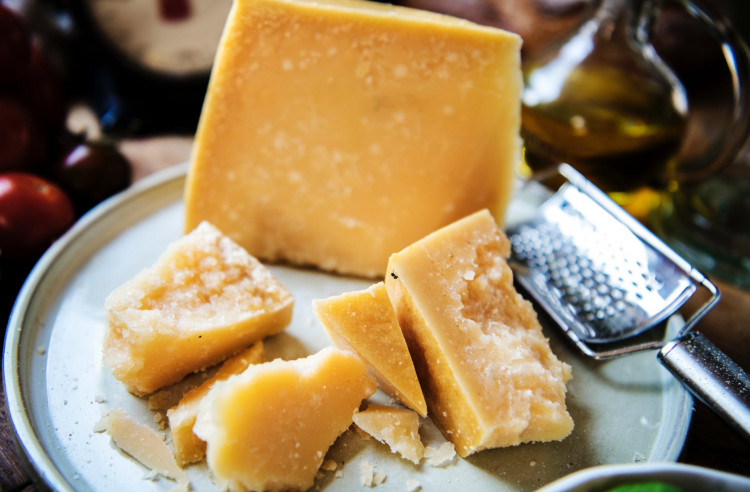When you lose weight, you're probably still wary of your cheese consumption. Since many kinds of cheese are high in fat, particularly saturated fats, they are calorie-dense, foods-which does not do your weight loss goals favors.
The trick to losing weight and keeping it off-is creating a balanced diet that you can commit to for the long term, according to the Centers for Disease Control and Prevention. Cheese is a nutrient-rich snack that you can use in a weight-loss diet, but it's high in calories, so you'll have to limit the amount you're consuming. The protein in the cheese will also help you lose weight by helping you feel full and satisfied.
Research has provided contradictory findings on the role of calcium and milk products in weight loss. However, two studies released at the end of 2012 - one in the American Journal of Clinical Nutrition and the other in the International Journal of Obesity - concluded that dairy products promote weight loss while they are part of a calorie-controlled diet.
A report published in the European Journal of Clinical Nutrition stated that overweight individuals who consumed more calcium-rich dairy products on a low-calorie diet lost the same amount of weight as those who did not consume as much milk, but showed becoming more satisfied and eventually eating less dietary fat.
So, if you like cheese, don't remove it from your diet. Instead, limit servings to 1 ounce and buy low-fat or fat-free brands to keep calories and fat under your everyday targets. Some varieties of full-fat cheese have between 72 and 125 calories per serving of 1 ounce.
Fat-free brands do not contain fat, which decreases calories by at least half, and sometimes more, depending on the form of cheese. Semi-soft cheeses, such as brie and brick, contain fewer calories than hard cheeses, but different types of cheese range in calories, so consult the nutritional information label of the products you purchase.
Apart from contributing to weight increase if you eat too much of it, cheese will make some people bloated. Some people feel full, tight, or bloated in the belly after eating cheese because they're lactose-intolerant. People who are lactose-intolerant are unable to completely absorb the sugar in milk and milk products.
If you are lactose-intolerant and eat cheese, you may experience diarrhea, nausea, stomach cramps, and gas from 30 minutes or 2 hours after you have consumed the cheese. If you think that you are allergic to lactose, see your doctor for tests and advice on improving your diet.






